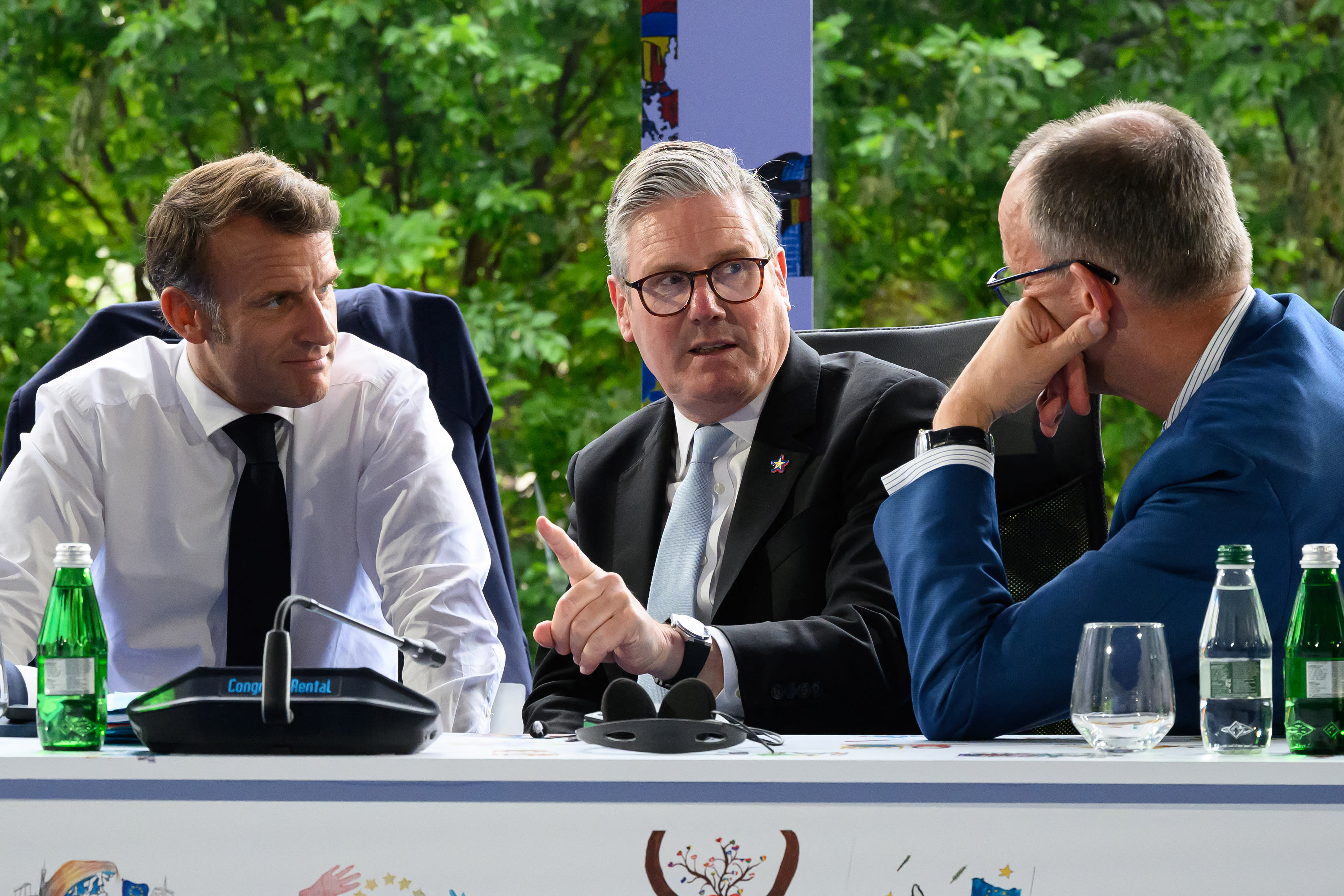Europe's Quest for a Nuclear Safety Net: Germany's Call for Self-Reliance
3 min read

In a world where geopolitical tensions are ever-evolving, the desire for security and autonomy becomes a pressing concern for nation-states. A recent poll reveals that a majority of Germans are advocating for Europe to establish its own nuclear umbrella, signaling a potential shift in defense strategies within the continent.
The Underpinnings of a Nuclear Proposal
The suggestion that Europe should develop its own nuclear deterrent is not entirely new. However, it gains renewed urgency amidst growing uncertainties regarding the United States' long-term commitment to NATO and European security. Historically, European defense has been significantly underpinned by the U.S. military, particularly during the Cold War era when NATO's nuclear strategies heavily leaned on American capabilities.
Fast forward to the 21st century, and the landscape has evolved. The transatlantic alliance, while still robust, faces challenges such as differing political agendas, economic priorities, and shifting public opinions. Recent geopolitical events and internal U.S. policy fluctuations have only fueled fears of a potential withdrawal or reduction of American military presence in Europe.
The Franco-British Nuclear Capability
Within Europe, France and the United Kingdom remain the only nuclear-armed states. Both countries possess independent nuclear arsenals and are integral members of NATO. France, under its "force de frappe," and the UK with its Trident missile system, have maintained their nuclear deterrents as part of national defense strategies. The Germans' preference for a European nuclear umbrella suggests leveraging these existing capabilities to create a collective security shield.
This approach would not only aim to bolster European sovereignty in defense matters but could also alter the balance of power within the continent. Historically, both France and the UK have shown readiness to cooperate on defense initiatives, as seen with the Lancaster House Treaties of 2010, which facilitated deeper military collaboration between the two nations.
Historical Context and Strategic Implications
The idea of a European nuclear deterrence isn't without precedent. In the 1950s and 60s, plans for a "European Defense Community" were floated but ultimately failed due to political disagreements among member states. The Cold War era's bipolar world order placed Europe under the protective umbrella of the U.S., but the dissolution of the Soviet Union and the rise of new global powers have reignited debates over European defense autonomy.
Today's strategic environment is marked by a complex array of threats, including cyber warfare, regional conflicts, and the resurgence of great power competition. A European nuclear umbrella could potentially serve as a deterrent against these multifaceted threats while simultaneously fostering a sense of unity and independence within the European Union.
The Path Forward
The German public's support for a European nuclear capability reflects broader concerns about regional security and the desire for a more self-reliant Europe. However, translating this public sentiment into policy presents significant challenges. Political, legal, and technical hurdles abound, not least of which involves persuading EU member states to agree on a unified defense strategy. Furthermore, the financial and diplomatic costs of developing a shared nuclear deterrent could be substantial.
Nevertheless, this debate signifies a critical juncture for Europe's future defense posture. As the continent grapples with its strategic identity in a rapidly changing world, the call for a European nuclear umbrella may well serve as a catalyst for greater integration and cohesion within the EU.
In conclusion, the momentum behind a European nuclear safety net underscores a pivotal shift in defense thinking. Whether this translates into concrete action remains to be seen, but the discourse itself highlights an undeniable trend towards seeking sovereignty and resilience in an unpredictable global arena.
Source: Most Germans want Europe to have its own nuclear umbrella, poll finds
